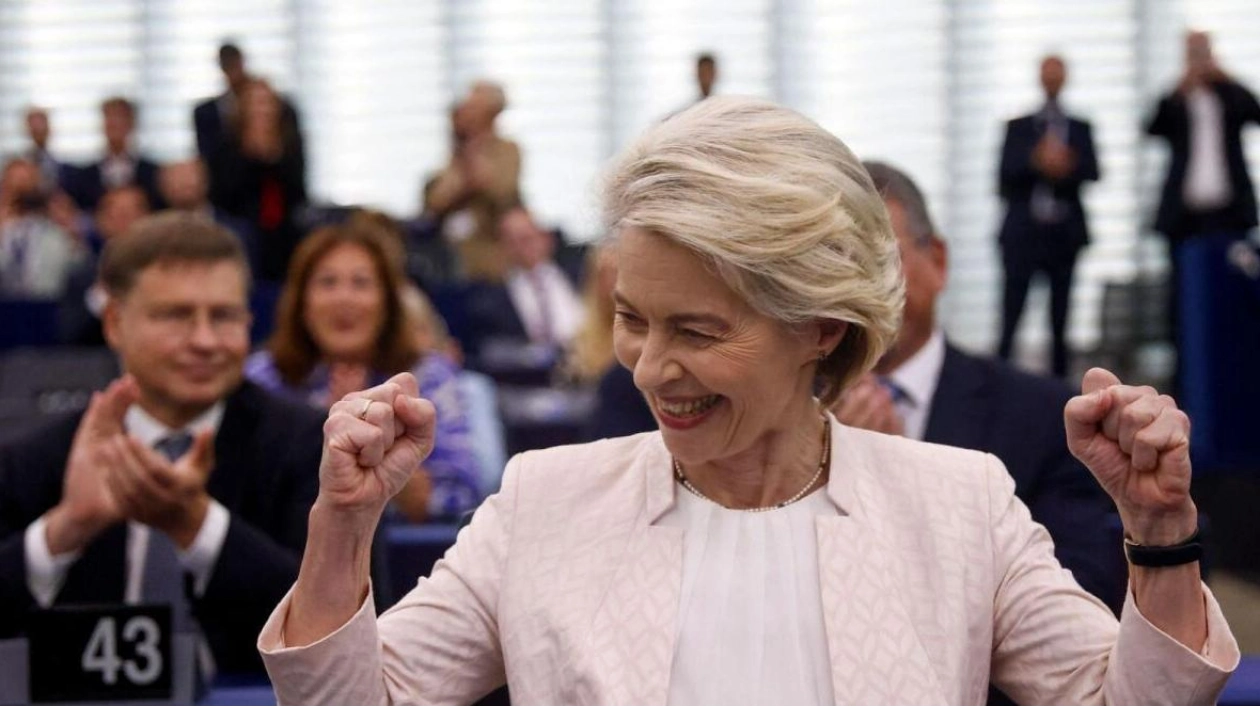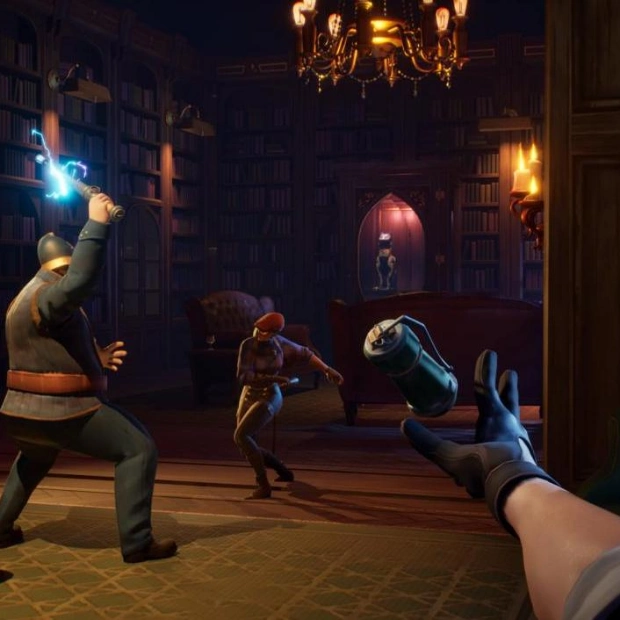European Commission President Ursula von der Leyen secured a second term on Thursday, following her commitment to establish a continental 'defence union' and maintain Europe's green transition while mitigating its impact on industry.
The European Parliament supported von der Leyen's bid for another five-year term as the head of the EU's powerful executive body, with 401 votes in favor and 284 against in a secret ballot among the 720-member chamber. In her address to the Parliament in Strasbourg, von der Leyen outlined a program centered on prosperity and security, influenced by the challenges posed by Russia's war in Ukraine, global economic competition, and climate change.
Von der Leyen emphasized the importance of not retreating from the 'Green Deal' transformation of the EU economy to combat climate change, a crucial pledge for Green lawmakers who supported her alongside center-right, center-left, and liberal groups. She also pledged to support Ukraine for as long as necessary in its conflict with Russia, stating that Europe's liberty was at risk and necessitated increased investment in defense.
As a former German defense minister, von der Leyen promised to create 'a true European Defence Union', focusing on flagship projects in air and cyber defense. This initiative drew criticism from the Kremlin, which viewed it as reflecting a stance of 'militarisation (and) confrontation'. Von der Leyen's criticism of Hungarian Prime Minister Viktor Orban's recent visit to Russian President Vladimir Putin in Moscow as an 'appeasement mission' received widespread applause from lawmakers.
Traditionally, defense policy in Europe has been the realm of national governments and NATO. However, following Russia's attack on Ukraine and uncertainties about future US support, the European Commission is pushing for more joint European defense projects. Von der Leyen also promised a series of climate policies, including a legally binding EU target to reduce emissions by 90% by 2040 compared to 1990 levels, and new measures to help European industries remain competitive while investing in emission reduction.
The Greens' decision to join the informal alliance supporting von der Leyen ensured a comfortable margin of victory, requiring 361 votes for a majority. Her coalition of center-right, center-left, and liberals holds 401 seats, though some members were expected to vote against her in the secret ballot. Von der Leyen's re-election ensures continuity in the EU's key institution amid external and internal challenges, including growing support for far-right and eurosceptic political parties in the 27-nation bloc.
In the coming weeks, von der Leyen will propose her team of commissioners, who will undergo individual hearings by lawmakers before a final vote on the entire Commission later this year.






